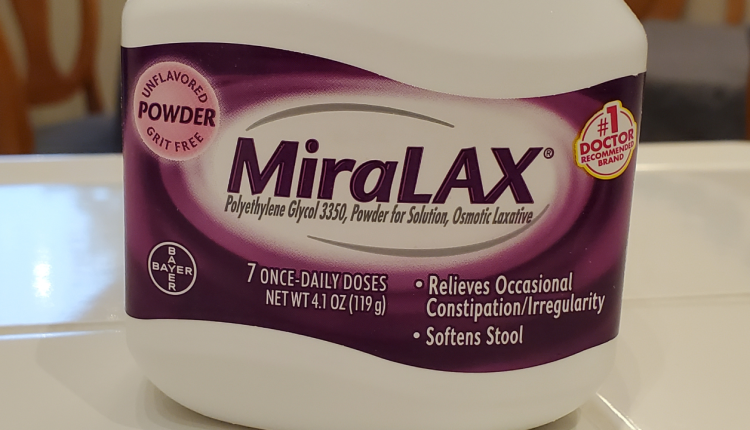Increasing demand for laxatives such as Miralax and Glycolax is being blamed for a shortage of stool softeners across America.
Gastroenterologists and suppliers say they are seeing a surge in demand for polyethylene glycol 3350, which is the generic name for Miralax and Glycolax. According to the Wall Street Journal, customers are seeing emptier shelves for laxatives across the country.
Both gastrological and behavioral experts are blaming an aging population and say that Americans’ fiber consumption is down, which sometimes leads to constipation.
Experts also cite the pandemic as a reason for the shortages, stating that psychological and physical results of the Coronavirus restrictions meant that people generally took less care of themselves, such as eating worse and exercising less.
Americans also experienced more anxiety, which doctors say are causes of bowel dysfunction.
KROGER WARNS OF WEAKER SALES, FURTHER STRESS FOR CONSUMERS
Dr. George Pavlou, president of Gastroenterology Associates of New Jersey, said “It’s crazy to think that our collective bowel dysfunction problems have gotten so bad that we’re literally running out of stool softeners.”
Pattern, an analytics company, told the Wall Street Journal that Amazon searches for laxatives have tripled over the past year.
More surprising, suppliers say, is the number of younger customers now relying on the products. Benefiber manufacturer Haleon, who states that 18- to 42-year-olds are buying their fiber supplement faster than they’ve seen before.
Jissan Cherian, who’s in charge of marketing for Benefiber, says that “The demand has changed.” He noted the shift can be attributed to a focus on wellness and an increasing awareness of a connection between depression and gut bacteria.
INFLATION FORCING AMERICANS TO SPEND $709 MORE PER MONTH THAN 2 YEARS AGO: ECONOMIST
28-year-old Carly Goldberg Black, who works in advertising, says she has been surprised by the number of people close in age who are complaining about issues with going to the bathroom.
Black says the shortages are becoming concerning.
“I’m a brand loyalist, but I’ve found myself reaching for the Wal-lax or CVS-lax, because they’re selling out,” said Black.
The reliance on laxatives, according to Mayo Clinic gastroenterology professor Dr. Brian Lacy, is that many individuals think they need at least one bowl movement per day, which he says is a “misconception.”
He said a healthy range of bowel movements is between three a day and three a week.
Read the full article here

